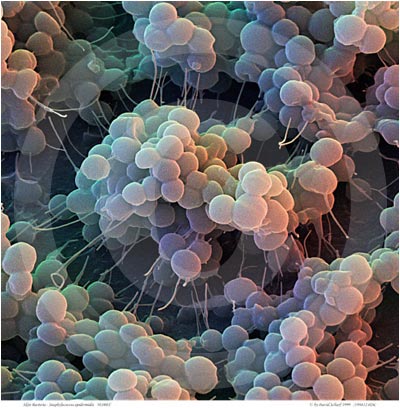Want to reduce the percentage of bacteria in your home the easy way? Go outside.
Just having a human in the room can add up to 37 million bacteria to the air every hour, although it's possible that those figures may be conservative (for example, it may be higher if the human is a drummer). Researchers at Yale University have been counting the microbes amongst which we spend our lives and conclude that, without mucky humans going and messing things up, we'd all have much cleaner homes.
"We live in this microbial soup, and a big ingredient is our own microorganisms," said Jordan Peccia, associate professor of environmental engineering at Yale and the principal investigator of a study recently published online in the journal Indoor Air. "Mostly people are re-suspending what's been deposited before. The floor dust turns out to be the major source of the bacteria that we breathe."
Peccia and his research team measured and analyzed biological particles in a single, ground-floor university classroom over a period of eight days — four days when the room was periodically occupied, and four days when the room was continuously vacant. At all times the windows and doors were kept closed. The HVAC system was operated at normal levels. Researchers sorted the particles by size.
Overall, they found that "human occupancy was associated with substantially increased airborne concentrations" of bacteria and fungi of various sizes. Occupancy resulted in especially large spikes for larger-sized fungal particles and medium-sized bacterial particles. The size of bacteria- and fungi-bearing particles is important, because size affects the degree to which they are likely to be filtered from the air or linger and recirculate, the researchers note.
Researchers found that about 18 percent of all bacterial emissions in the room — including both fresh and previously deposited bacteria — came from humans, as opposed to plants and other sources. Of the 15 most abundant varieties of bacteria identified in the room studied, four are directly associated with humans, including the most abundant, Propionibacterineae, common on human skin.
"All those infectious diseases we get, we get indoors," he said, adding that Americans spend more than 90 percent of their time inside.
Source: Yale University

The aim of art is to represent not the outward appearance of things, but their inward significance. – Aristotle
















